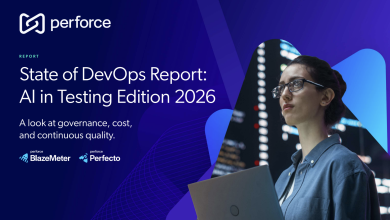
£2 billion a year – this is what the skills shortage in the AI sector is costing businesses and is why 18 universities across England secured £13 million funding from the Department for Digital, Culture, Media and Sport (DCMS), the Department for Business, Energy and Industrial Strategy (BEIS) and the Office for Artificial Intelligence (OAI) to broaden the available talent and, crucially, workforce diversity.
Increasing the number and diversity of the workforce
Last autumn, and following a £500,000 funding award from the Office for Students (OfS), Teesside University was one of 13 institutions that began enrolling students on postgraduate conversion courses which are geared to supporting the overall increase in the number of skilled people in AI and data science by at least 2,500 by 2023, and the diversity of the workforce through 1,000 scholarships for underrepresented groups, particularly among female, black and registered disabled students.
With the input of project partners such as Accenture, Applied Integration, Cisco, and Clicksco, students on our MSc Applied Artificial Intelligence and MSc Applied Data Science receive specialist teaching and paid work placements, allowing graduates from STEM and non or far STEM subjects to boost their digital skills – helping to address the shortage of AI and data specialists joining the UK workforce.
History hampering a transformative impact
The lack of talent and the lack of diversity which has been hampering transformative impact in AI for many years (and a driver for these innovative postgraduate conversion courses) has been cited in numerous influential reports:
- In 2016, ‘The Digital Skills Crisis’ estimated that the digital skills gap is costing the UK economy approximately £63 billion a year in lost additional GDP. It said the UK needs 745,000 additional workers with digital skills to meet rising demand from employers.
- Research from ‘Indeed’ revealed the number of AI jobs in the UK listed on its online jobs board grew 485% between 2014 and 2017. According to analysis, this accounts for more than two jobs per qualified individual and six jobs for every qualified job seeker, so the demand for more skilled people in AI and data science is proven.
- The 2017 UK Digital Strategy predicted that within 20 years, 90% of all jobs will require some element of digital skills and in order to meet demand, the UK will need a larger workforce with deep AI expertise.
- The report ‘Growing the Artificial Intelligence Industry in the UK’, also published in 2017, underlines that the experts needed to develop AI are in short supply. It emphasises that the current workforce is not representative of the wider population.
- The lack of diversity is further highlighted in the 2019 AI Sector Deal Review which acknowledges that increasing diversity is vital to ensure everyone with the potential to participate has the opportunity to do so.
Effective local and national level responses
It is essential that AI developed in the UK reflects the needs and make-up of society as a whole, and it is crucial that industry and the public sector can access the greatest supply of talent in terms of numbers. It is also important that the needs of localities are supported.
At a local level, our approach will help to address the digital skills gaps in the Tees Valley, which are limiting business growth and productivity, by providing inclusive Masters’ level courses in applied AI and data science for recent graduates and professionals from academic backgrounds such as health and business.
So what has been the wider impact so far? In November 2020, the OfS published new analysis
Office for Students wrote the article ‘New analysis shows postgraduate courses are increasing diversity in AI and data science‘ which shows that not only are more students from diverse backgrounds applying and accessing the courses, but it also indicates a positive change which will begin to address some of the inequalities experienced in the tech sector.
Around 40% of the total students enrolled in the programmes are women, 25% are Black and 15% are students who are disabled. And in terms of scholarship students, three quarters (76%) of these were women, nearly half (45%) were Black and almost a quarter (24%) were disabled.
Targeted approaches and better communication
This is a good start, but change is needed in the sector if the UK is to engage a broad variety of different organisations and skillsets to realise its potential to grow AI. The scholarships are also available to students from areas of the UK where young people are less likely to go on to higher education, refugees, estranged students, students who have been in care, Gypsy, Roma and Traveller students, and children from military families, veterans and partners of military personnel. Outreach is needed with these communities to encourage them to consider careers in AI and data science. The courses are aimed at students of all ages who are looking to gain new skills, return to work, or retrain.
We also need to improve our communication around the essential and exciting applications of AI to real-world issues, such as countering online abuse, driving improved support for at-risk communities such as refugees, and detecting early signs of disease. For example, one of my Teesside University colleagues, Dr. Annalisa Occhipinti, uses computational and statistical methods to provide a better understanding of cancer progression and predict survival probability. She is now looking at researching the application of AI computational models of breast cancer for early-detection personalised tests.
It is a long game, but if we are to build a diverse pipeline of people who will be the future leaders of AI in industry, government, and academia we have to bring underrepresented groups with us. Whilst the postgraduate conversation courses are funded until 2023, and at Teesside University we are actively recruiting for the next cohort, we can only hope to further demonstrate why they are so important to the bigger picture.



